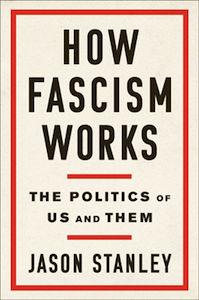How fascism works
A recent piece in The Atlantic by Peter Beinart filled in a cognitive gap in understanding how a large minority of U.S. citizens continue to support an abjectly incompetent, almost certainly criminal, willfully ignorant, and generally hateful man as president. The article Why Trump supporters believe he is not corrupt makes the argument that when Trump defenders concern themselves with the idea of corruption they are not thinking of political corruption so much as corruption of the purity. This is consistent with Jonathan Haight’s research into the determinants of a person’s moral judgments as a function of political affiliation.^[This has been noted before by Thomas Edsall back in early 2016 writing for The New York Times.] Conservatives are likelier than liberals to concern themselves with tradition and purity. When Donald Trump uses the word disgusting which he has done scores of times on Twitter, he’s invoking the conservative fear of taint. The Special Prosecutor’s inquiry into possible collusion and other crimes committed during the 2016 elections, in Trump’s view, are not only unlawful, biased, or unfavourable in some other objective way. It is, to Trump, disgusting (“this Rigged and Disgusting Witch Hunt.”)
According to Beinart, the key to understanding the failure of Trump’s supporters to acknowledge his corruption is the result of how they define corruption.
In a forthcoming book titled How Fascism Works, the Yale philosophy professor Jason Stanley makes an intriguing claim. “Corruption, to the fascist politician,” he suggests, “is really about the corruption of purity rather than of the law. Officially, the fascist politician’s denunciations of corruption sound like a denunciation of political corruption. But such talk is intended to evoke corruption in the sense of the usurpation of the traditional order.”
Why were Trump’s supporters so convinced that Clinton was the more corrupt candidate even as reporters uncovered far more damning evidence about Trump’s foundation than they did about Clinton’s? Likely because Clinton’s candidacy threatened traditional gender roles. For many Americans, female ambition—especially in service of a feminist agenda—in and of itself represents a form of corruption. “When female politicians were described as power-seeking,” noted the Yale researchers Victoria Brescoll and Tyler Okimoto in a 2010 study, “participants experienced feelings of moral outrage (i.e., contempt, anger, and/or disgust).”
Fascists, like Trump, pull a sleight of hand. By invoking the risk of corrupting purity, tradition and order, they distract their supporters from the real political corruption.
